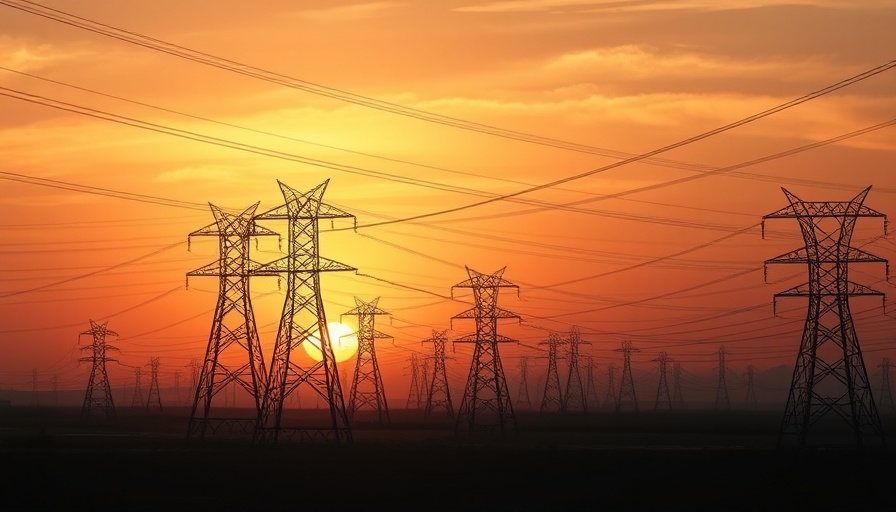
Supercharging Our Power Grid with AI
As global energy demands continue to rise, the integration of artificial intelligence (AI) into the power grid emerges as a transformative force. The latest advancements highlight AI's capability to enhance efficiency, reliability, and resilience in the energy sector. This new technological frontier is essential in addressing aging infrastructure and the urgent need for maintenance across energy systems.
The Future of Energy: AI-Driven Predictions
One of the most revolutionary applications of AI within electrical grids is predictive maintenance. By utilizing existing data, AI algorithms can foresee equipment failures before they occur. For instance, researchers at Argonne National Laboratory have developed AI-enabled tools that analyze sensor data from the grid to optimize maintenance schedules, ultimately improving the lifespan of crucial components. This revolutionary approach allows energy providers to address potential problems proactively, thus maintaining grid reliability.
Global Context: A Shift Toward Renewable Energy
The push for renewable energy resources, such as solar and wind power, further necessitates innovative solutions. The U.S. aims to derive 44% of its energy from renewables by 2050. The integration of diverse renewable sources, which often present variable output, increases the complexity of grid management. Here, AI acts as a vital ally, enabling seamless integration and operation across fluctuating power supplies, thus supporting ambitious climate goals.
Challenges and Counter Perspectives
Despite its potential, the reliance on AI to optimize power grids raises concerns. Issues such as data privacy, cybersecurity, and the erosion of human expertise are critical points of discussion. The risk of over-automation could jeopardize essential human skills in monitoring and managing energy systems. Finding a balance between AI oversight and human intuition will be crucial for the successful navigation of this transformation.
The Road Ahead: Opportunities for Improvement
With continued investment in AI technologies, energy providers can enhance operational efficiency, potentially reducing maintenance costs by up to 56%. Enedis, a French utility, provides an example of how deploying such technologies can lead to substantial reductions in outages and failings across electrical networks. Moving forward, the focus must remain on collaboration between industry and research institutions to drive further innovation.
Call to Action: Embrace the AI Revolution
As the energy landscape evolves, staying informed about these advancements is vital. For consumers and businesses alike, understanding how these shifts can impact accessibility and reliability of energy is essential. Engaging with local energy providers and advocating for sustainable practices can empower communities to adapt to this new era of energy management.
 Add Row
Add Row  Add
Add 




Write A Comment